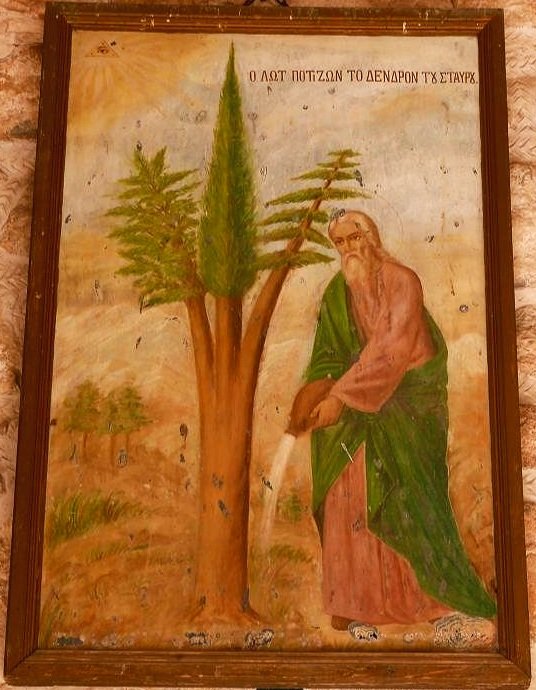Mark 8:27-38
Jesus went on with his disciples to the villages of Caesarea Philippi; and on the way he asked his disciples, “Who do people say that I am?” And they answered him, “John the Baptist; and others, Elijah; and still others, one of the prophets.” He asked them, “But who do you say that I am?” Peter answered him, “You are the Messiah.” And he sternly ordered them not to tell anyone about him.
Then he began to teach them that the Son of Man must undergo great suffering, and be rejected by the elders, the chief priests, and the scribes, and be killed, and after three days rise again. He said all this quite openly. And Peter took him aside and began to rebuke him. But turning and looking at his disciples, he rebuked Peter and said, “Get behind me, Satan! For you are setting your mind not on divine things but on human things.”
He called the crowd with his disciples, and said to them, “If any want to become my followers, let them deny themselves and take up their cross and follow me. For those who want to save their life will lose it, and those who lose their life for my sake, and for the sake of the gospel, will save it. For what will it profit them to gain the whole world and forfeit their life? Indeed, what can they give in return for their life? Those who are ashamed of me and of my words in this adulterous and sinful generation, of them the Son of Man will also be ashamed when he comes in the glory of his Father with the holy angels.”
Who do you say that I am?
After three years of friendship, fellowship, teaching, preaching and performing many kinds of miracles, Jesus takes His disciples to the region of Caesarea Philippi. A huge temple where gods and goddesses from the Greek and Roman mythologies are worshipped in that area.
There Jesus asks them the crucial question about their personal faith in His Person. "Who do you say that I am?" What others say might be important, but what the disciples say is what Jesus is interested in — even though He knows everyone's faith.
Is the disciples' faith a kind of mythology, as of those who worship human-made false gods?
We know Peter's answer, endorsed by all the disciples because he speaks for them, "You are the Christ" (v. 29). This is the answer Jesus wants to hear from the disciples, and still wants from us today.
His response is not at all what they expect. They are still expecting a political and military Christ. Immediately Jesus starts to tell them about His imminent sufferings in Jerusalem, and about the Cross leading to His Resurrection.
At this point, they can't understand, and they even refuse the idea of suffering, crucifixion and death. Isn't He the Son of David, the invincible King of Israel, the almighty Christ and the eternal Messiah whose kingdom will have no end?!
Jesus asks the disciples not to tell that He is the Christ because He doesn’t want to be known as the Christ before His crucifixion and Resurrection. It is through the Cross that He redeems humanity.
An icon at St George’s Greek Orthodox Monastery in the Valley of the Cross in Jerusalem. Tradition says that Abraham instigated planting three trees together, the pine, cypress and cedar. From here, the wood for Jesus’ cross was taken.
This week, we celebrate the Exaltation of the Holy Cross. This is where we remember the return of true cross to be re-installed on Calvary in Jerusalem in 628, after being taken to Persia in 614. The Cross is the glorification of our faith. There is no Christian faith without the cross.
We are invited to listen to Jesus asking, "Who do you say that I am" today, for you personally?
Do I believe that Christ is alive today?
What do others say and what do I say about Him?
Do I accept a suffering Christ as a model of what may happen to me in my life?
We are almost at the end of the annual liturgical cycle. It’s time to reflect upon our own progress, and grow in our faith and practice throughout the rest of this year.
Let us keep this question in our mind and respond honestly, “Who am I for you today?"

